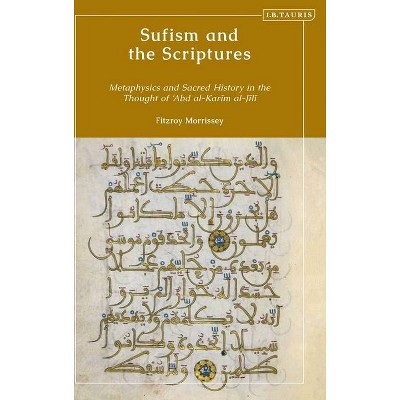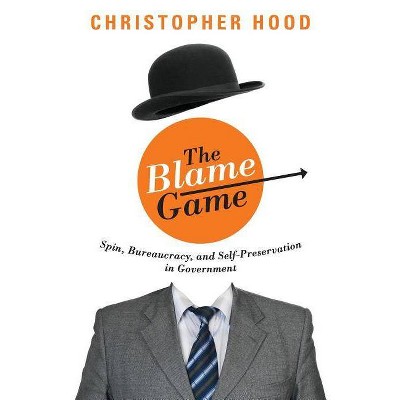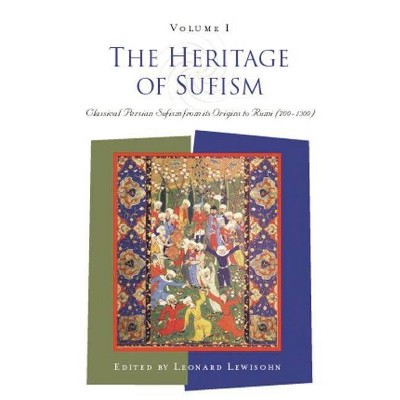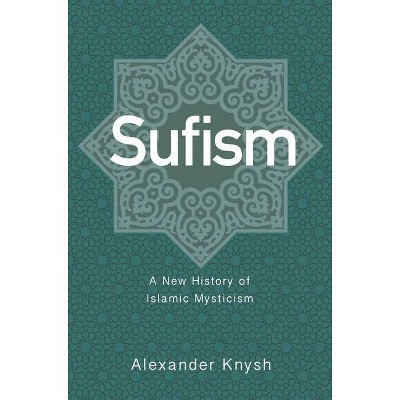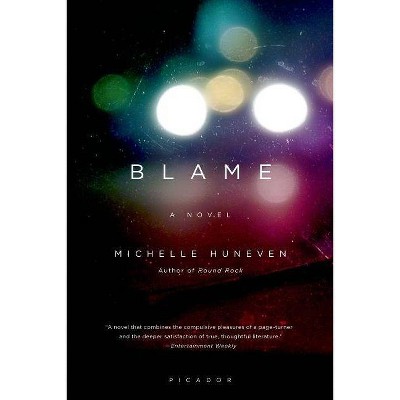Sufism and the Way of Blame - by Yannis Toussulis Phd (Paperback)
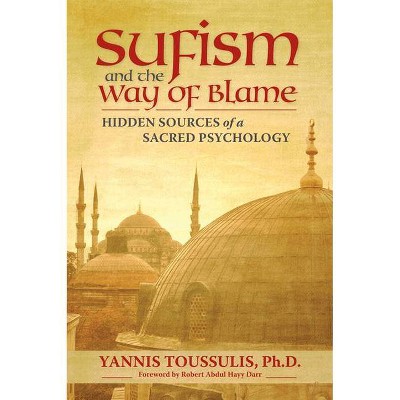
Similar Products
Products of same category from the store
AllProduct info
<p/><br></br><p><b> About the Book </b></p></br></br>This is a definitive book on the Sufi "way of blame" that addresses the cultural life of Sufism in its entirety. Originating in ninth-century Persia, the "way of blame" (Arab. malamatiyya) is a little-known tradition within larger Sufism that focused on the psychology of egoism and engaged in self-critique. Later, the term referred to those Sufis who shunned Islamic literalism and formalism, thus being worthy of "blame." Yannis Toussulis may be the first to explore the relation between this controversial movement and the larger tradition of Sufism, as well as between Sufism and Islam generally, throughout history to the present. Both a Western professor of the psychology of religion and a Sufi practitioner, Toussulis has studied malamatiyya for over a decade. Explaining Sufism as a lifelong practice to become a "perfect mirror in which God contemplates Himself," he draws on and critiques contemporary interpretations by G. I Gurdjieff, J. G. Bennett, and Idries Shah, as well as on Frithjof Schuon, Martin Lings, and Seyyed Hossein Nasr. He also contributes personal research conducted with one of the last living representatives of the way of blame in Turkey today, Mehmet Selim Ozic.<p/><br></br><p><b> Book Synopsis </b></p></br></br><p><b>Gold Winner of the 2012 Benjamin Franklin Award and the 2012 Independent Publisher Book Award!</b></p><p>This is a definitive book on the Sufi way of blame that addresses the cultural life of Sufism in its entirety. Originating in ninth-century Persia, the way of blame (Arab. malamatiyya) is a little-known tradition within larger Sufism that focused on the psychology of egoism and engaged in self-critique. Later, the term referred to those Sufis who shunned Islamic literalism and formalism, thus being worthy of blame. Yannis Toussulis may be the first to explore the relation between this controversial movement and the larger tradition of Sufism, as well as between Sufism and Islam generally, throughout history to the present. Both a Western professor of the psychology of religion and a Sufi practitioner, Toussulis has studied malamatiyya for over a decade. Explaining Sufism as a lifelong practice to become a perfect mirror in which God contemplates Himself, he draws on and critiques contemporary interpretations by G. I Gurdjieff, J. G. Bennett, and Idries Shah, as well as on Frithjof Schuon, Martin Lings, and Seyyed Hossein Nasr. He also contributes personal research conducted with one of the last living representatives of the way of blame in Turkey today, Mehmet Selim Ozic.</p><p/><br></br><p><b> Review Quotes </b></p></br></br><br>Dr.Yannis Toussulis has written the definitive study of Malamati Sufism . . --<b>Rabbi Zalman Schachter Shalomi</b>, co-author of <i>A Heart Afire: Stories</i> and Teachings of <i>Early Hasidic Masters</i> <p/>-- "Reviews"<br><br>. . . a critical assessment of the history, context, and spiritual significance of one of the most important yet hidden traditions within Islamic mysticism . . (the way of blame) cuts to the bone, and points to what a mature spirituality could be. --<b>Kabir Helminski</b>, author of <i>Living Presence</i> and <i>The Knowing Heart: A Sufi Path of Transformation</i>; translator of Rumi, and Sufi teacher-- "Reviews"<br><br>. . . surpasses any book on the topic currently in print. This is an authoritative volume, and one badly needed at this time. --<b>Stanley Krippner, PhD</b>; Recipient of the Ashley Montagu Award, Professor of Psychology, Saybrook University; co-author of <i>Personal Mythology</i>-- "Reviews"<br><br>At last! - a trustworthy book on the blame-worthy ones. -<b>Peter Lamborn Wilson</b> (a.k.a. Hakim Bey), author of <i>Scandal: Essays in Islamic Heresy</i>, co-author of <i>The Drunken Universe: An anthology of Persian Sufi Poetry</i> and <i>Green Hermeticism: Alchemy and Ecology</i>-- "Reviews"<br><br>Explaining Sufism as a lifelong practice to become a 'perfect mirror in which God contemplates Himself, ' he (Toussulis) draws on and critiques contemporary interpretations by G. I Gurdjieff, J. G. Bennett, and dries Shah, as well as on Frithjof Schuon, Martin Lings, and Seyyed Hossein Nasr. He also contributes personal research conducted with one of the last living representatives of the way of blame in Turkey today, Mehmet Selim Ozic. --<i>New Consciousness Review</i>-- "Reviews"<br><p/><br></br><p><b> About the Author </b></p></br></br><b>Yannis Toussulis, Ph.D.</b> earned his doctoral degree in psychology with an emphasis in human science research from Saybrook University (1995). He also holds an M.A. in psychology with an emphasis in existential counseling and psychotherapy from Lone Mountain College (1975). Dr. Toussulis is former Co-Director of the Consciousness Studies Program in the Graduate Department of Psychology at Antioch University/West, where he also spent over 14 years teaching. For the past ten years he has taught the psychology of intercultural conflict as an adjunct professor at the Graduate School of International Policy Studies at the Middlebury Institute of International Studies at Monterey, and he has also served as an associate faculty member at the Starr King Divinity School at the Graduate Theological Union in Berkeley, California. Dr. Toussulis is presently the spiritual adviser for the Itlaq Foundation which is based in the San Francisco Bay Area, California.
Price History
Cheapest price in the interval: 17.99 on November 8, 2021
Most expensive price in the interval: 18.99 on May 23, 2021
Price Archive shows prices from various stores, lets you see history and find the cheapest. There is no actual sale on the website. For all support, inquiry and suggestion messagescommunication@pricearchive.us

